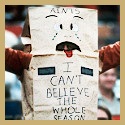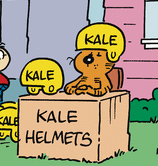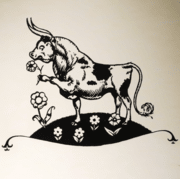|
newtestleper posted:He's my favorite writer. His short stories are what he's known for. Sixty stories contains most of his most famous stories. Barthelmes the dead father book is pretty swank. There are some great lines and ideas. Some pages of non attributed dialogue work across the page. I first was turned into him through his short short story "the school" If you dig his stuff, I also recommend his brothers work, Frederick Barthelme. It's good but in a very different way. while Donald creates metafiction that mocks/highlights how fake language can be, Frederick creates tilts in the other direction by creating hyper-real work that is detached from generating a concrete idea of reality but instead creates an incredibly "hallucination-powered" representation: "filled with alien people on a world very much like ours with achingly pristine language An easy example: "Hyperreal fiction not only reflects the condition of commodification [in relation to capitalism and desire] in postmodern society but also thematizes it: Donald Barthelme writes in a short story in 1979 posted:Went to the grocery store and Xeroxed a box of English muffins, two pounds of ground veal and an apple. In flagrant violation of the Copyright act.' and Frederick's 1983 "Safeway" is similar but very different: " Fredrick barthelme Safeway 1983 posted:You look at her shoes. They are high-helped, buff colored. "Hi," you say. She doesn't stop, only pushes on toward the front of the store. You race in the opposite direction, trying to get the waffles and the TV Guide and find her checkout line for a last look, but the store is out of the waffles you want, Kellogg's, so you take the house brand -- small squares in a clear plastic bag." Jameson, another author, relates in his essay: "Postmodernism and Consumer Society" that consumer objects glow with a hallucinatory energy. Desire in all its forms is now lifted from any kind of grounding and is free to float from people (notably women) to consumer objects whose colors seem intense and hyperreal.... quote:Go on -- buy one," says a girl walking by. You turn and watch her shoulders; you do want something, suddenly, so you go back to the medical supplies and select the Curad bandages, because the package is green." ... Frederick has a little bio section on his website talking about how his own writing evolved so distinctly different from his brother and it's cool.
|
|
|
|

|
| # ? Apr 25, 2024 21:03 |
|
To anyone struggling with The Recognitions or just meaning to get into Gaddis, I highly recommend going with either JR or A Frolic of His Own first. They are both much more matured in style (a very unique and engaging style at that). I also think they are both better than Reg, with Frolic possibly being the best book ever written (don't shoot me). E: And do take advantage of the official(?) Gaddis web site. It explains all the references that are as numerous as they are obscure. It really helped me enjoy Gaddis even more. Jerome Agricola fucked around with this message at 07:21 on Jun 22, 2016 |
|
|
|
Though the website's great I still attest that reading along with the guides is cheating, the books are trying very hard to throw their readers and having the references, puns, and plots pinned out for you should be left for a second read. Comfort yourself knowing that he got a lot of stuff out of an Oxford Dictionary of Quotations. And yeah, after Rec he lost his religious fervour, it's 100% about being battered by capitalism and is therefore more relatable, I guess. Also, there's a biography put out last year, part of the critics continuing movement to ignore the books. Mr. Squishy fucked around with this message at 11:23 on Jun 22, 2016 |
|
|
|
Mr. Squishy posted:Though the website's great I still attest that reading along with the guides is cheating. I don't. Either you know/get the reference or you don't. But I do agree with trying to figure it out on your own first. That's part of the charm. So it's not like I advise anyone to stop at every obscure or hard to get part and immediately check the site. The way I did it was to read a chapter or few and then check what I missed. Well at least with Recognitions. When I was reading Frolic + JR I had no idea such a site existed. So actually now I'm not completely sure anymore if you should do this. If you are not the type to re-read stuff, at the very least check the annotations after you've finished, maybe even check them periodically during the reading. Heck, try it out, see what it feels like to you. In any case, don't worry about "cheating". It's your enjoyment. Maximize it your own preferred way.
|
|
|
|
I feel that missing stuff because you hosed up by not paying attention to a baffling wave of information (either given in the book or assumed general knowledge) was 100% what Gaddis was going for. So much of his stuff is people talking over one another at cross purposes. I'm glad Ult found it funny though, a lot of the first critics called it dour even though it's got some of the goofiest pratfalls in literature.
|
|
|
|
Yeah don't get me wrong, Gaddis taught me to enjoy just letting go and go with the flow even though I'm not always entirely sure who's talking or what's even happening. I learned to trust that all would be made clear eventually. And when it often wasn't, I learned not to be such a pedantic completionist and just enjoy the prose. You know the more I analyze this, the more I feel you should just let the text take you where ever without external sources. Then again, I did enjoy Recog a lot with the references handy. So once again, try what works for you, but don't feel intimitated if you're not always quuite sure what's going on. It's part of the process.
|
|
|
|
I haven't read Gaddis (yet), but I like his idea of the reader and the story in a collaboration for an true reading experience. That's what I've learned from reading Po-Mo. You can't understand everything in this world, but you can learn something by trying. Enjoy the journey. I like Pynchon for this, and his response to Jules Siegel's criticism towards V.'s complexity is spot on with the genre: "Why should things be easy to understand?" Which is funny, because I glean a lot of this philosophy from V. and Lot 49. Much of V's plot centers around two people given different opportunities for "understanding". Stencil is searching for "V.", but does so by trying to get in mindsets of characters in journals, looking into minute details for clues, even concentrating on words to see if they mean something with inflection: quote:“A phrase (it often happened when he was exhausted) kept cycling round and round, preconsicously, just under the threshold of lip and tongue movement: “Events seem to be ordered into an ominous logic.” It repeated itself automatically and Stencil improved upon on it each time, placing emphasis on different words—“events seem”; “seem to be ordered”; “ominous logic”—pronouncing them differently, changing the “tone of voice” from sepulchral to jaunty: round and round and round. Events seem to be ordered into an ominous logic.” And Benny Profane keeps getting thrown into situations full of coincidence, as if Life or some greater force is trying to teach him something about himself, but he's just so drat content with being discontent, he can't grow: quote:“A schlemihl is a schlemihl. What can you "make" out of one? What can one make out of himself? You reach a point, and Profane knew he had reached it, where you know how much you can and cannot do. But every now and again he got attacks of acute optimism.” quote:“Some of us are afraid of dying; others of human loneliness. Profane was afraid of land or seascapes like this, where nothing else lived but himself.” But given this frame, even though characters may not change drastically from villain-to-hero or from weak to strong, when faced with their reality, they're able to at least understand themselves a little more: quote:“For that moment at least they seemed to give up external plans, theories, and codes, even the inescapable romantic curiosity about one another, to indulge in being simply and purely young, to share that sense of the world's affliction, that outgoing sorrow at the spectacle of Our Human Condition which anyone this age regards as reward or gratuity for having survived adolescence.” This is just my reading, but I like (and believe) that Pynchon would be the kind of writer to write a post-modern novel about post-modern novels quote:“Time of course has showed the question up in all its young illogic. We can justify any apologia simply by calling life a successive rejection of personalities. No apologia is any more than a romance—half a fiction—in which all the successive identities are taken on and rejected by the writer as a function of linear time are treated as separate characters. The writing itself even constitutes another rejection, another “character” added to the past. So we do sell our souls: paying them away to history in little installments. It isn’t so much to pay for eyes clear enough to see past the fiction of continuity, the fiction of cause and effect, the fiction of a humanized history endowed with “reason.” their writers quote:“It takes, unhappily, no more than a desk and writing supplies to turn any room into a confessional. This may have nothing to do with the acts we have committed, or the humors we do go in and out of. It may be only the room--a cube--having no persuasive powers of its own. The room simply is. To occupy it, and find a metaphor there for memory, is our own fault.” and their readers quote:“What of Thought? The Crew had developed a kind of shorthand whereby they could set forth any visions that might come their way. Conversations at the Spoon had become little more than proper nouns, literary allusions, critical or philosophical terms linked in certain ways. Depending on how you arranged the building blocks at your disposal, you were smart or stupid. Depending on how others reacted they were In or Out. The number of blocks, however, was finite. and finding beauty in the confusion. quote:“Could we have been so much in the midst of life? With such a sense of grand adventure about it all?” quote:“Life's single lesson: that there is more accident to it than a man can ever admit to in a lifetime and stay sane.”
|
|
|
|
I've started Gravity's Rainbow and I think I enjoyed the first 50 pages of this more than the entirety of Inherent Vice.
|
|
|
|
Has anyone brought up the point that Trump is peak post-modernity yet? While it's nice to believe that politicians should be competent as well as have an appealing image, Trump's presidency seems to show that all that counts is the latter. When does the news just start being reality TV? A post-post-modern culture would just ban celebrities from running for office outright. Wasn't the president character from Infinite Jest kinda like Trump? Change Gently's slogan to Make America Clean Again and boom, u got yourself a Trump. almost there fucked around with this message at 06:59 on Nov 12, 2016 |
|
|
|
Electric Owl posted:Has anyone brought up the point that Trump is peak post-modernity yet? While it's nice to believe that politicians should be competent as well as have an appealing image, Trump's presidency seems to show that all that counts is the latter. That's hardly new. Ronald Reagan and Arnold Schwarzenegger were celebrities elected as governor of California mostly due to their fame, neither had any real prior political experience
|
|
|
|
Earwicker posted:That's hardly new. Ronald Reagan and Arnold Schwarzenegger were celebrities elected as governor of California mostly due to their fame, neither had any real prior political experience Trump isn't like those candidates and you know it. At least Schwarzenegger and Raegan had a consistent message. Many Americans are left in the situation now where they don't exactly know what they voted for even after the election. Peeps in D&D are slinging quotes from the man that support both sides of any one of his positions. The man can play tennis. I see some ppl online say Trump's post-truth which if u ask me is the meatiest master narrative there is And anyways, just because it isn't new doesn't make it not interesting dicknut
|
|
|
|
Electric Owl posted:Trump isn't like those candidates and you know it. At least Schwarzenegger and Raegan had a consistent message. No he's not the same as those candidates but the phenomenon is largely the same. I was living in California during Schwarzenegger's election and entirely regardless of his message a shitload of people came out to vote for him because he's The Terminator. I gaurantee you the average Schwarzenegger voter at that time could not have described any of his policies, it was a total circus. Electric Owl posted:And anyways, just because it isn't new doesn't make it not interesting dicknut Sure it's interesting, my point is that it's a common phenomenon and I don't see how it's "peak" post-modernism or even unique to the post-modern period. Politicians are getting better and better at manipulating the mass media, sure, but in general people rising to power based on their fame and personal charm instead of substantive ideas or competence is as old as politics itself. Earwicker fucked around with this message at 07:42 on Nov 12, 2016 |
|
|
|
im srry i just thought it was cool and post modern and u guys were talking about post modernity and i just wanted to be cool like you guys EDIT: did some thinking and I gotta say that what makes Trump's candidacy peak post-modernity over celebrities like Raegan or Arnie is probably the fact that Trump never claimed to be playing a character when he was on tv. Raegan played a cowboy and Arnie played a cybernetic death machine from the future but Trump didn't just play a businessman, he was one too. Trump as a person and brand exists outside the fictional sphere and on the labels of products and hotels people actually buy. Nobody since Don Quixote quite blurred the line between history and fiction so well. almost there fucked around with this message at 08:23 on Nov 12, 2016 |
|
|
|
the last three posters are banal and pompous fa-words who should be relegated to D and D
|
|
|
|
hog fat posted:the last three posters are banal and pompous fa-words who should be relegated to D and D I don't understand the hate. I'm just trying to point out that the US election has been like post-modern theatre in the post-modern thread. I even mentioned IJ so give me a break. This oped piece hits on a lot of good points: https://www.washingtonpost.com/blogs/post-partisan/wp/2016/09/27/clinton-vs-trump-modern-vs-postmodern/ quote:Clinton vs. Trump: Modern vs. postmodern --Washington Post 09/27/16 almost there fucked around with this message at 02:59 on Nov 18, 2016 |
|
|
|
Really consistently misspelling Reagan Also the article is some high-school level misunderstanding of pretty much everything it's talking about.
|
|
|
|
Anyone read George Saunders new Lincoln in the Bardo?
|
|
|
|
Better Fred Than Dead posted:Anyone read George Saunders new Lincoln in the Bardo? I too am interested in anyone's reviews. Just finished Tenth of December and thoroughly enjoyed most of the stories. The man really gets into the heads of his characters.
|
|
|
|
Better Fred Than Dead posted:Anyone read George Saunders new Lincoln in the Bardo? Just finished. REAL good. Like Gaddis at his peak.
|
|
|
|
While we're recommending things, check out Chimera by John Barth. Just read it for my book club and I was blown away by it. Check it out if you like re-imagined myths, layers of narration, and the author inserting multiple versions of himself into a story. Currently in the middle of William H. Gass's The Tunnel and it is a beast.
|
|
|
|
Price Check posted:While we're recommending things, check out Chimera by John Barth. Just read it for my book club and I was blown away by it. Check it out if you like re-imagined myths, layers of narration, and the author inserting multiple versions of himself into a story. I'm reading Barth's The Sot-Weed Factor right now (the recent Dalkey reprint with a nice black-and-white hummingbird watercolor on the cover). I just looked at an excerpt from Chimera and I'm completely blown away by how radically different the style is. He really expertly imitates the late-Restoration British style (think, I dunno, Laurence Sterne) in Sot-Weed, and I'm a bit shocked that the same guy could have written both of these. The Tunnel is sitting on my shelf waiting for me to take a long vacation.
|
|
|
|
at the date posted:I'm reading Barth's The Sot-Weed Factor right now (the recent Dalkey reprint with a nice black-and-white hummingbird watercolor on the cover). I just looked at an excerpt from Chimera and I'm completely blown away by how radically different the style is. He really expertly imitates the late-Restoration British style (think, I dunno, Laurence Sterne) in Sot-Weed, and I'm a bit shocked that the same guy could have written both of these. Great avatar. I'm surprised, but not, that so many books that I have read are considered post-modern. When I was an English Literature major I was taught that Chinua Achebe was the first post-modernist writer but that A Passage to India could arguably be considered post-modern. That was about fifteen years ago, mind you. Some of the books I've started to read but cannot finish include The Sot Weed Factor, Gravity's Rainbow, and Infinite Jest. The former two because How about Cormac McCarthy? Blood Meridian is Biblical. It's as great a novel as Moby Dick, in my experience. e: \/\/\/ the last time I tried to read Infinite Jest was before PK was published, and I'd forgotten about it - haven't gotten around to it. Huggybear fucked around with this message at 00:15 on Mar 14, 2017 |
|
|
|
You can read Pale King but not IJ?
|
|
|
|
at the date posted:I'm reading Barth's The Sot-Weed Factor right now (the recent Dalkey reprint with a nice black-and-white hummingbird watercolor on the cover). I just looked at an excerpt from Chimera and I'm completely blown away by how radically different the style is. He really expertly imitates the late-Restoration British style (think, I dunno, Laurence Sterne) in Sot-Weed, and I'm a bit shocked that the same guy could have written both of these. I had a teacher who maintained Sot-Weed is the great American novel. I haven't read it so I'm curious as to what sense it reads postmodern?
|
|
|
|
hog fat posted:I had a teacher who maintained Sot-Weed is the great American novel. I haven't read it so I'm curious as to what sense it reads postmodern? Most obvious would probably be (1) the book-in-a-book The Marylandiad. Also (2) the studied, digressive antiplot borrowed from Tristram Shandy, (3) the pitch-perfect parody of what was already parodic, and (4) a jungle of irony both dramatic and situational.
|
|
|
|
I believe Barth to be the greatest living American writer. He's so incredibly underrated that it's disgusting.
|
|
|
|
The guy's underrated? and he's still alive?
|
|
|
|
Everybody who's read a Barth book all the way through seems to flip out over how good it is, so I don't think "underrated" is the right word so much as "under-read."
|
|
|
|
at the date posted:The Tunnel is sitting on my shelf waiting for me to take a long vacation. Just finished the other day. In some sense now is the perfect time to read it. Gass basically lays out a road map for how something like the Alt-Right can become a dominant faction in a country. It also spends quite a bit of time on rural disaffection. And the parts about academic infighting are fun. All that plus the Germany sections of the book make for a compelling read. However, 650+ pages of stream of consciousness writing just feels like way too much. It was easier to handle in a book the length of Omensetter's Luck. If you're a Gass fan already you'll probably enjoy at least most of it. If you've tried him before and didn't find him to your liking it's very unlikely that this one will change your mind. Continuing the Postmodern kick with Carpenter's Gothic. About a third of the way through and it's a lot of fun. Reminiscent of A Frolic of His Own and the apartment scenes in JR. Gaddis is such a master of revealing things to the reader in a roundabout way.
|
|
|
|

|
| # ? Apr 25, 2024 21:03 |
|
Here's Gass reading the bit I liked from The Tunnel.
|
|
|

















